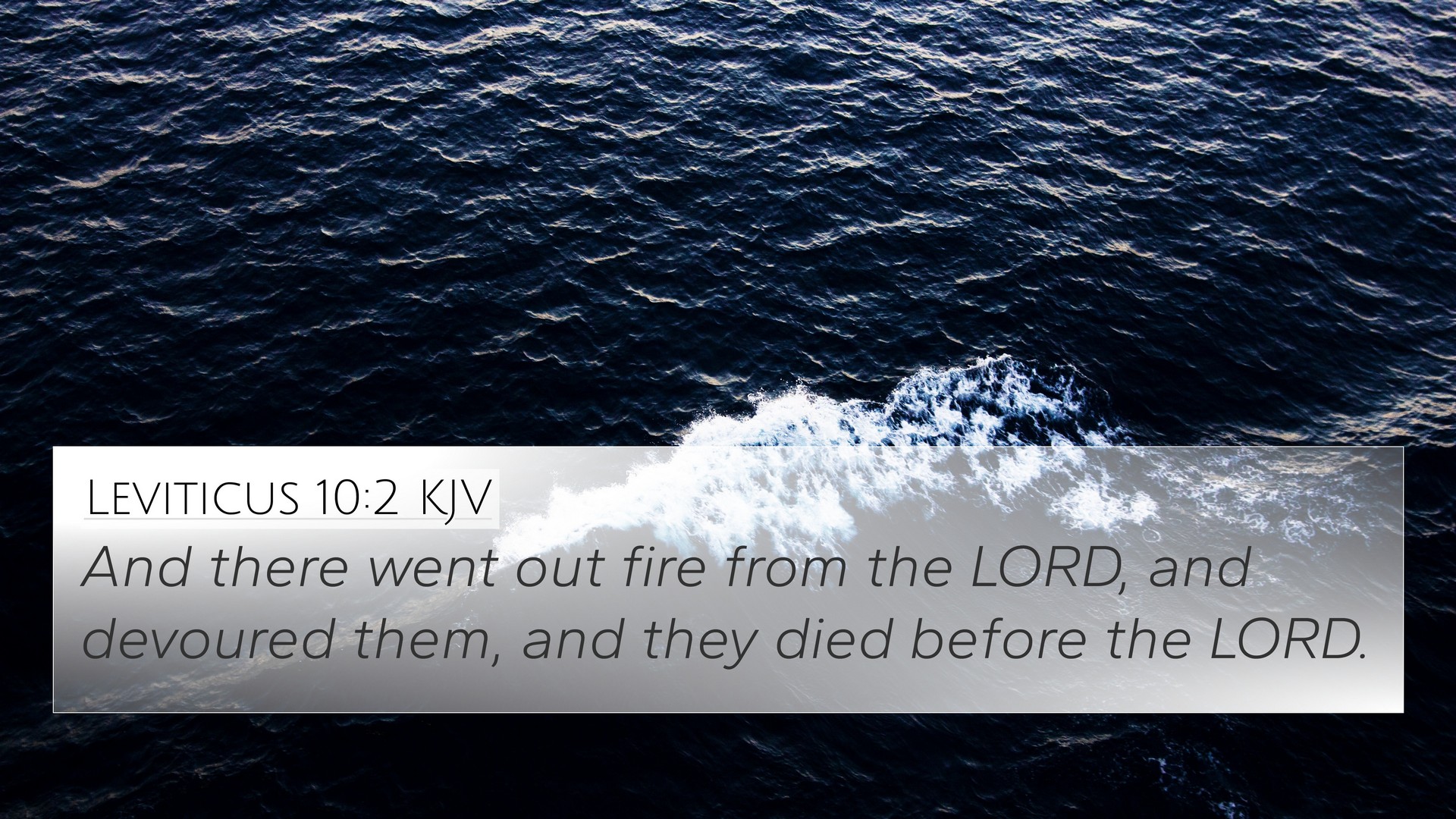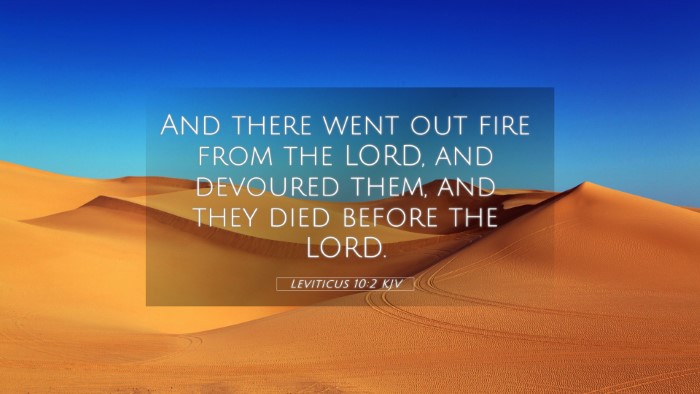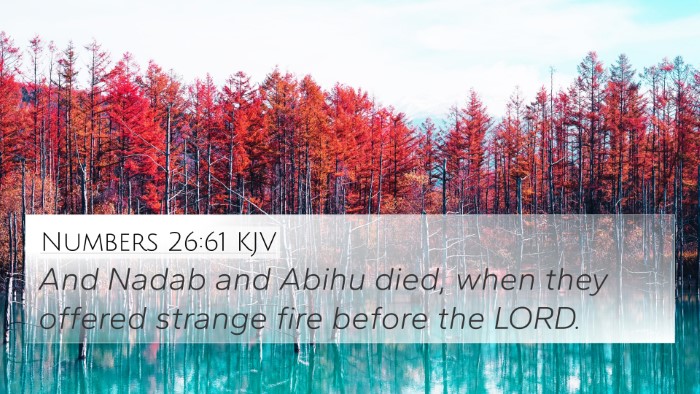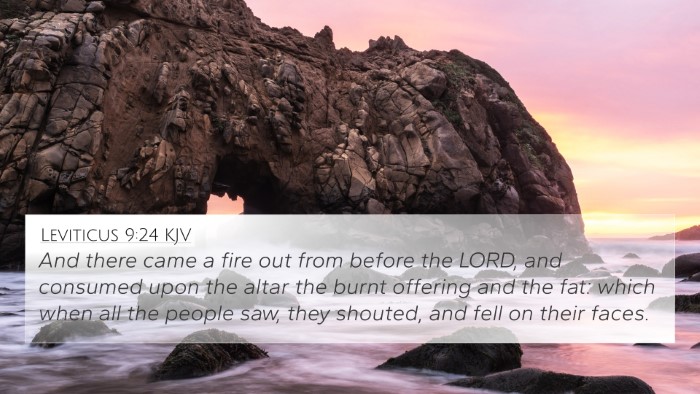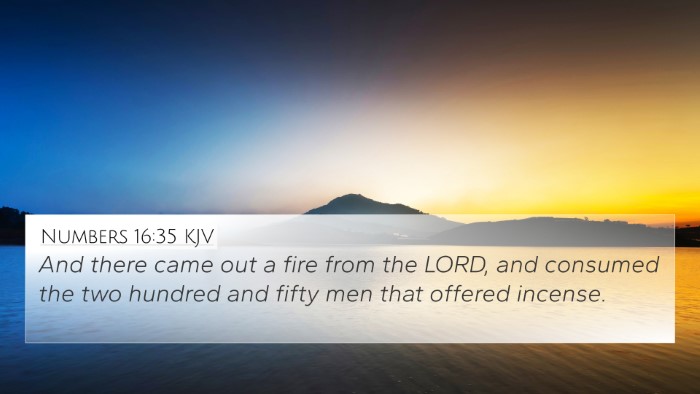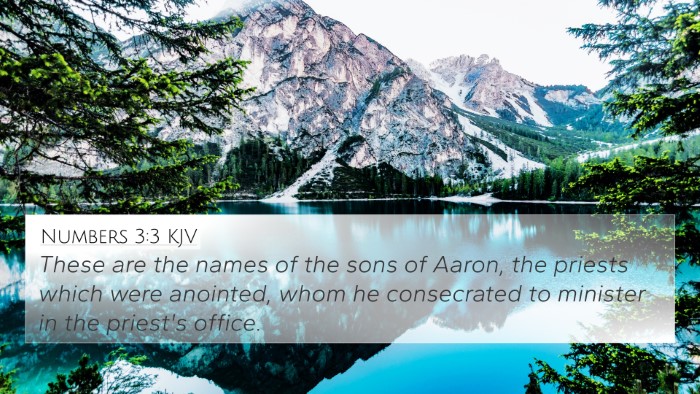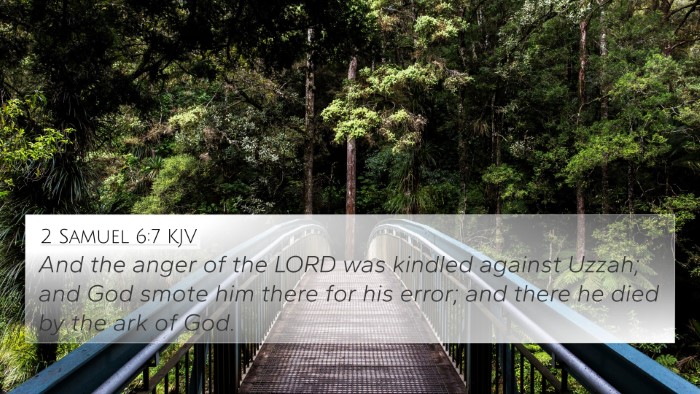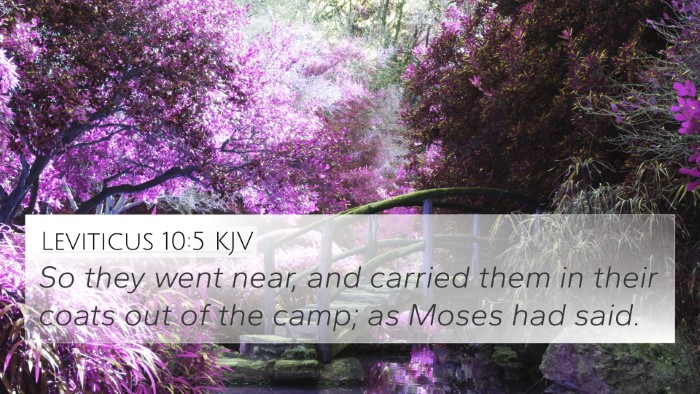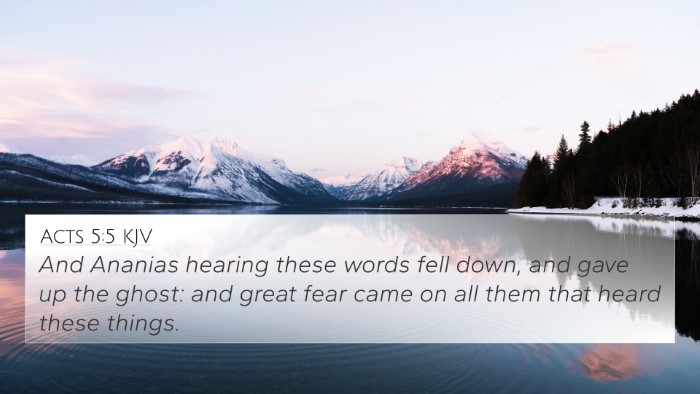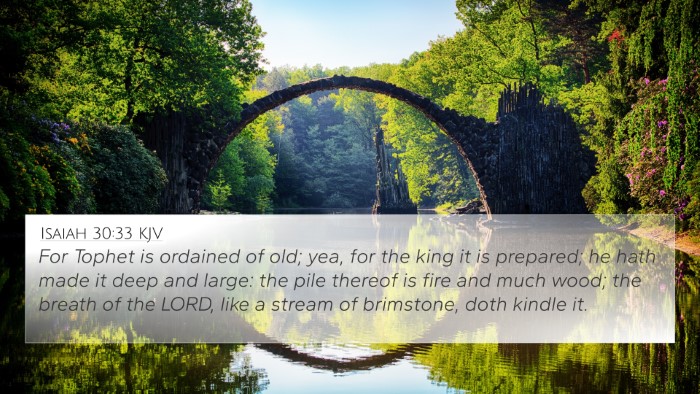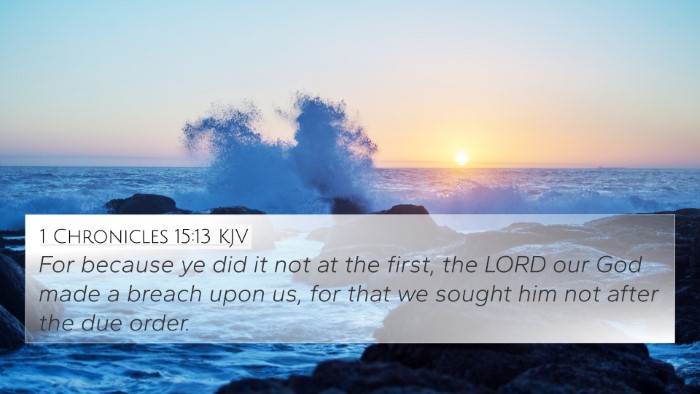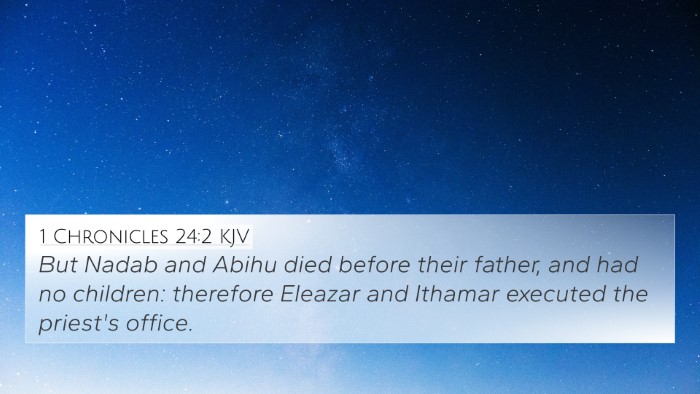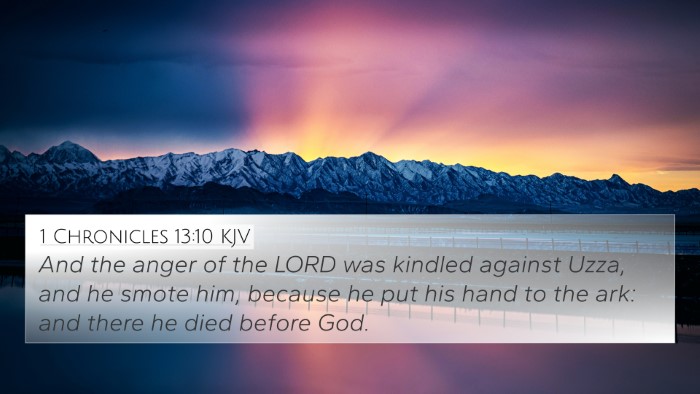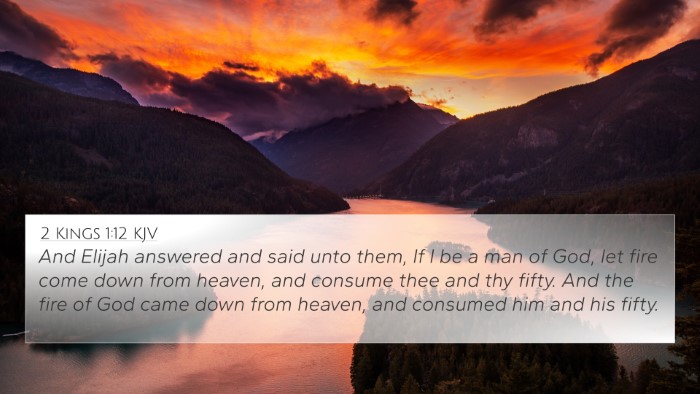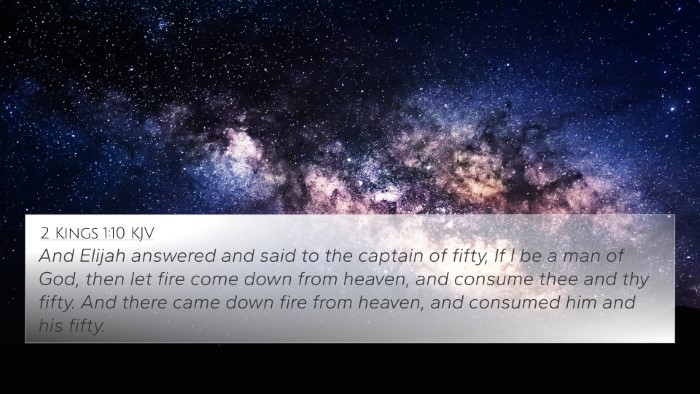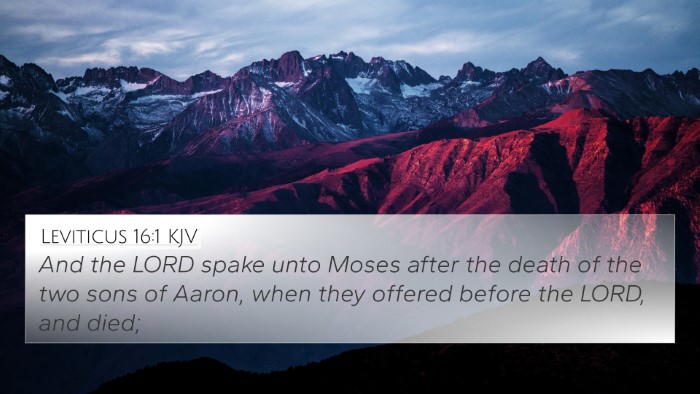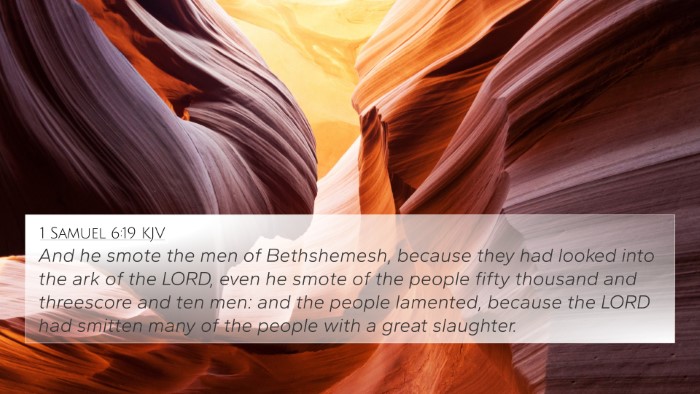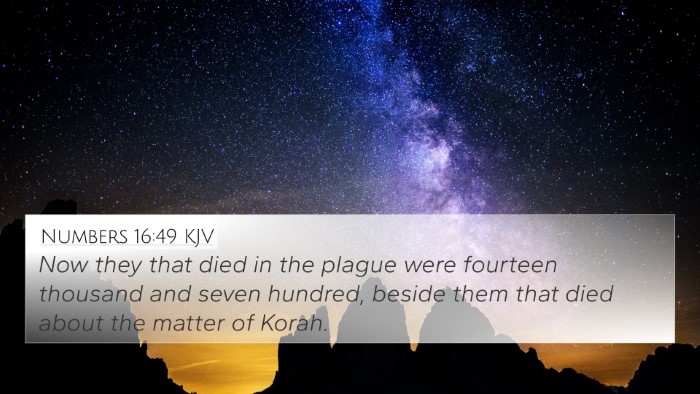Understanding Leviticus 10:2
Leviticus 10:2 states: “And there went out fire from the Lord, and devoured them, and they died before the Lord.” This sobering event occurs shortly after the consecration of Aaron and his sons as priests, highlighting the seriousness of their role in the service of God. Below, we will combine insights from public domain commentaries to derive a more profound understanding of this verse.
Context and Background
This verse is part of a larger narrative in Leviticus, specifically concerning the importance of holiness and reverence in approaching God. The incident involves Nadab and Abihu, the sons of Aaron, who offered “strange fire” before the Lord, which He had not commanded them to do. This act of disobedience and irreverence resulted in immediate punishment.
Insights from Commentaries
-
Matthew Henry:
Henry points out that the fire sent from the Lord signifies divine judgment and serves as a powerful reminder of God's holiness. He emphasizes that Nadab and Abihu's actions demonstrate a serious breach of protocol that leads to severe consequences. Their story warns future generations of the importance of adhering strictly to God's commands.
-
Albert Barnes:
Barnes elaborates on the nature of the “strange fire,” suggesting that it symbolizes unauthorized worship and personal interpretation of God’s commands. He draws a connection to the need for exactness in worship practices as prescribed by God, reflecting that any deviation can have dire repercussions. This perspective invites a serious consideration of how worship should be conducted.
-
Adam Clarke:
Clarke interprets this fire as an emblem of the divine presence, which can be both purifying and consuming. He mentions that Nadab and Abihu's inconsistency and irreverence in service—failing to regard God’s holiness—led to their demise. This commentary reinforces that God's presence demands reverence and respect, particularly within sacred contexts.
Thematic Connections
This verse resonates with various themes within the Bible, inviting discussion on the nature of holiness, worship, and the consequences of disobedience. Let's explore some relevant Bible verse cross-references and connections:
- Exodus 30:9: This reference emphasizes that the Israelites were prohibited from offering unauthorized incense, reinforcing the rules of acceptable worship.
- Numbers 3:4: The deaths of Nadab and Abihu underscore the serious nature of priestly service, where improper conduct before God could result in death.
- Hebrews 12:29: Here, the author describes God as a consuming fire, reflecting the theme of God's holiness and the seriousness of His judgment on sin.
- 1 Samuel 2:30: God declares that He will honor those who honor Him, contrasting the fate of those who disregard His commands.
- Romans 12:1: Paul calls believers to present their bodies as living sacrifices, highlighting aspects of acceptable worship rooted in reverence.
- Malachi 1:6: God rebukes the priests for dishonoring His name, linking thematically to Nadab and Abihu’s failure.
- Matthew 7:21: Jesus warns that not everyone who calls Him Lord will enter heaven, paralleling the idea that only God's prescribed methods of worship are valid.
- James 1:22: The necessity of being doers of the word—not mere hearers—echoes the need for obedience in worship.
- 1 Peter 1:16: This quote from Leviticus reiterates God's command to be holy because He is holy, emphasizing the perpetual relevance of this theme.
- Revelation 14:7: The call to fear God and give Him glory highlights the serious nature of worship across all ages.
Cross-Referencing and Deeper Study
Tools for Bible cross-referencing can aid in exploring deeper connections within Scripture. Engaging with a Bible concordance or cross-reference guide can further illuminate the intricate web of themes and messages found in biblical texts.
The process of cross-referencing biblical texts involves identifying thematic Bible verse connections that resonate across both the Old and New Testaments. Understanding significant verses that relate to one another can provide clarity and deepen one’s biblical study experience.
How to Use Cross-References in Bible Study
Utilizing a Bible cross-reference system allows individuals to make comprehensive connections between scriptures, as seen in the narrative of Nadab and Abihu. Following these steps can enhance your study:
- Identify key themes in the primary verse.
- Look at parallel verses that echo similar messages or themes.
- Reflect on how these scriptures interact and provide a broader understanding of the topic.
- Consider the context of each verse to appreciate the full narrative.
- Use thematic connections for deeper personal application and reflection.
Conclusion
Leviticus 10:2 serves as a powerful reminder of the importance of holiness in worship and the serious consequences of disobedience. Through the insights from public domain commentaries and various scripture cross-references, we gain a richer understanding of God's expectations and the gravity of our approach to Him. Each related verse invites further contemplation on our relationship with the divine and reinforces the necessity for reverence and obedience in our worship practices.
